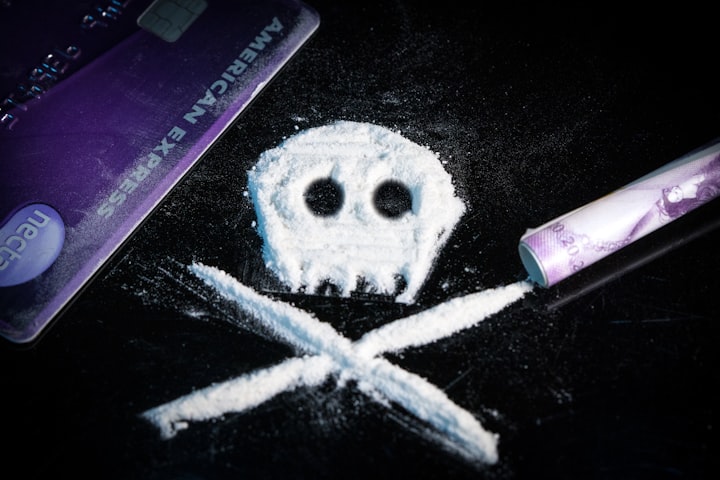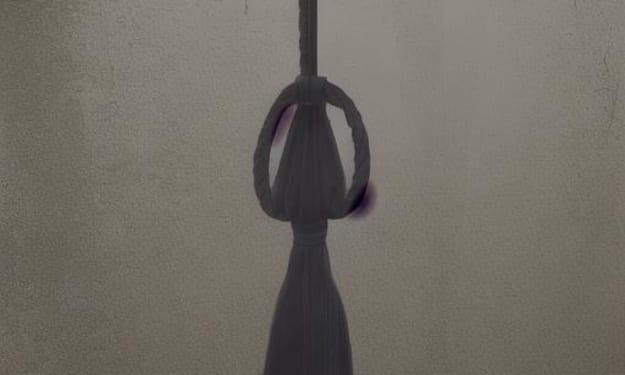Breaking the Chains of Addiction: Overcoming the Physical and mental Struggles of Drug Use
From Struggle to Strength: Overcoming Addiction and Thriving in Life

Drug addiction is a serious and complex issue that can affect individuals from all walks of life. The impact of drug use can vary significantly, and can lead to a range of negative health consequences that can be both physical and mental.
One of the most significant risks associated with drug use is addiction. Addiction can be characterized by compulsive drug seeking and use despite negative consequences. It can be difficult for individuals struggling with addiction to break the cycle of drug use, and they may need professional treatment and support to overcome it.
Drug use can also have negative physical health consequences. The impact of drug use can vary depending on the drug being used, the frequency and intensity of use, and the individual's overall health and medical history. For example, the use of tobacco products can increase the risk of lung cancer, heart disease, and stroke. Similarly, the use of alcohol and opioids can cause liver damage and increase the risk of liver disease. Drug use can also increase heart rate and blood pressure, putting users at risk of cardiovascular disease.
In addition to the physical health consequences of drug use, it can also have negative effects on mental health. Long-term drug use can increase the risk of depression and anxiety, and can worsen existing mental health conditions. It can also lead to significant changes in the brain's structure and function, making it more difficult for individuals to maintain overall wellbeing.
Drug use can also have significant social and economic consequences. Individuals who struggle with addiction may experience legal problems, financial instability, relationship issues, and more. These consequences can be devastating not only for the individual, but for their families and loved ones as well.
Despite the potential negative consequences of drug use, recovery is possible. Seeking professional treatment and support is often the first step towards recovery. Treatment options may include medication-assisted treatment, behavioral therapy, support groups, and more. It is important to remember that recovery is a journey, and it may take time and effort to achieve.
For individuals seeking help and support, there are many resources available. The National Institute on Drug Abuse (NIDA) provides information and resources on drug addiction, treatment options, and more. The Substance Abuse and Mental Health Services Administration (SAMHSA) offers a national helpline and directory of treatment facilities for individuals seeking help with substance abuse and mental health issues. Narcotics Anonymous (NA) is a 12-step program for individuals seeking support and recovery from drug addiction. SMART Recovery is a non-profit organization offering support and resources for individuals seeking self-directed recovery from addiction.
In conclusion, drug addiction can have significant negative health and social consequences, and seeking help and support is crucial for individuals struggling with addiction. Recovery is possible, but it may take time and effort to achieve. It is important to remember that seeking help and support is a sign of strength, and that there are many resources available to individuals in need.
here are some tips to keep in mind:
- Reach out for help: If you are struggling with drug addiction, it's important to reach out for help. You don't have to go through this alone. There are many resources available, such as support groups, hotlines, and treatment centers.
- Stay committed to your recovery: Recovery is a journey, and it can take time and effort to achieve. It's important to stay committed to your recovery and continue to seek support even when things get difficult.
- Develop healthy coping mechanisms: Finding healthy ways to cope with stress and other triggers can help you avoid relapse. Consider practicing mindfulness, exercise, or other healthy activities that bring you joy.
- Surround yourself with positive influences: Surrounding yourself with people who support your recovery and have positive influences can help you stay on track. Avoid spending time with people or in environments that may trigger your drug use.
- Take care of your physical and mental health: Prioritizing your physical and mental health can help support your recovery. This includes getting enough sleep, eating a healthy diet, and seeking professional help for any mental health concerns.
Remember that recovery is possible, and with the right support and resources, you can overcome addiction and live a fulfilling life.
About the Creator
MAKING REAL MONEY
Follow me!






Comments
There are no comments for this story
Be the first to respond and start the conversation.